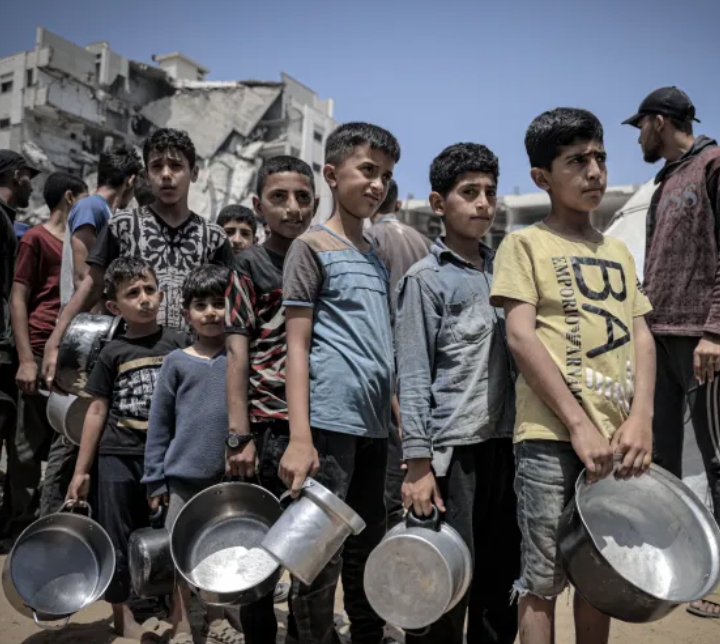GHF halts Gaza aid after deadly Israeli shooting; controversy over neutrality and leadership.
US-backed GHF Suspends Gaza Aid for a Day, Appoints New Executive Chairman


The Gaza Humanitarian Foundation (GHF), which receives support from both the United States and Israel, announced it will pause its aid distribution efforts in Gaza starting Wednesday. This suspension follows a deadly incident the previous day when Israeli forces opened fire on Palestinians near a GHF distribution point, killing at least 27 people and injuring over 100 others who had gathered to receive assistance.
Israel’s military further declared that roads leading to the aid distribution centers would be designated as “combat zones” on Wednesday. Residents of Gaza were urged to avoid these routes and to comply with the warnings issued by both the military and GHF. An Israeli military spokesperson stated, “We confirm that travel is prohibited tomorrow on roads leading to the distribution centers … and entry to the distribution centers is strictly forbidden.”
On social media, GHF explained that the temporary halt was necessary to carry out “renovation, reorganisation and efficiency improvement work” at its sites. The organization advised the public not to visit the distribution centers during this period and promised that aid operations would resume on Thursday.
This pause in aid distribution comes amid reports that since GHF began operating in Gaza on May 27, more than 100 Palestinians seeking humanitarian assistance near its sites have been killed by Israeli forces. These deaths have provoked widespread international condemnation. United Nations Secretary-General Antonio Guterres has called for an independent investigation into the killings and demanded accountability for those responsible. He said, “It is unacceptable that Palestinians are risking their lives for food.”
The Israeli military acknowledged the use of force on Tuesday but defended its actions, claiming that it opened fire after “suspects” deviated from designated routes while a crowd was moving toward the GHF distribution site. The military also stated that it is investigating the incident and the reports of casualties.
On the same day, GHF appointed Reverend Dr. Johnnie Moore, a prominent US evangelical Christian figure, as its new executive chairman. Moore, who advised the White House during President Donald Trump’s first term, stated that GHF was “demonstrating that it is possible to move vast quantities of food to people who need it most — safely, efficiently, and effectively.”
However, the UN and other aid organizations have declined to work with GHF, criticizing the group for lacking neutrality and alleging that it contributes to the militarization of aid in Gaza. Israel has faced accusations of “weaponising” hunger in Gaza through a prolonged blockade that restricts the flow of food, medicine, water, and other vital supplies into the territory.
Moore’s leadership has heightened concerns about GHF’s agenda, particularly given his past endorsement of a controversial plan proposed by Trump in February. This plan suggested that the US take control of Gaza, relocate the Palestinian population, and pursue real estate development in the area. Following Trump’s announcement, Moore posted a video of the remarks on social media, commenting, “The USA will take full responsibility for future of Gaza, giving everyone hope & a future.”
In response to UN Secretary-General Guterres’s condemnation of the recent killings of aid seekers, Moore tweeted, “Mr Secretary-General, it was a lie… spread by terrorists & you’re still spreading it.”
The foundation’s original executive director, former US Marine Jake Wood, resigned before GHF’s operations in Gaza began, citing concerns over the organization’s “impartiality” and “independence.” Critics have accused GHF, which has not disclosed its funding sources, of aligning with Israeli military objectives to depopulate northern Gaza by concentrating aid distribution in the southern part of the territory. This has forced thousands of desperate Palestinians to undertake dangerous journeys in order to access aid.

 বাংলা
বাংলা  Spanish
Spanish  Arabic
Arabic  French
French  Chinese
Chinese 
